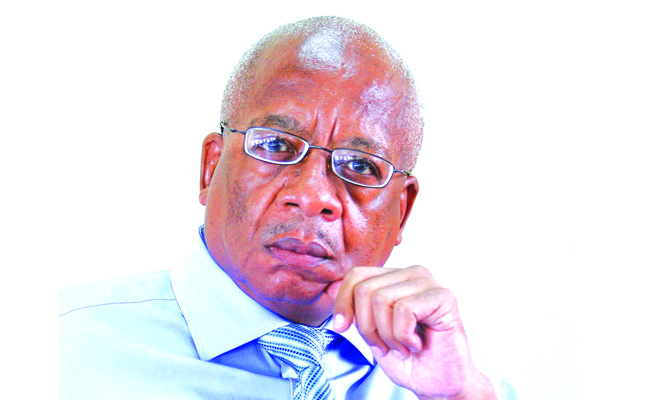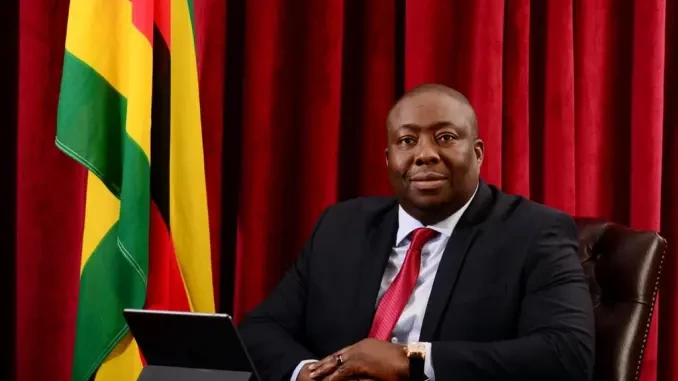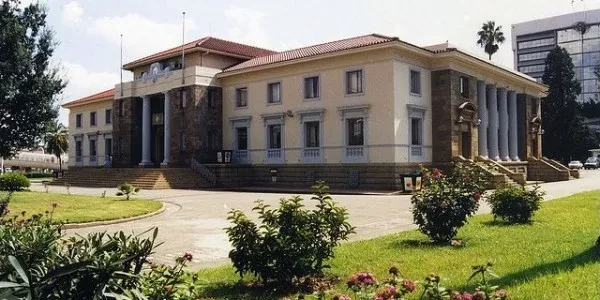
BY JOHN GAMBANGA
IF I had to cobble an epitaph for the late Conway Tutani , who breathed his last on the second day of this month I would write the following:
Here lies one of Zimbabwe’s best subeditors and proofreaders whose weekly opinion column in the NewsDay was a must read for thousands from all walks of life as it raised very important issues affecting society. May his dear soul rest in eternal peace.
We knew each other in the mid-1960s from Mbare in Harare, where I attended Shingirayi Government School while Tutani attended Tomlinson Depot Primary Dchool where his father, Stanley Tutani was the headmaster. His mother worked as a nurse at the Morris Depot Clinic.
Tutani used to stay with his uncle, who lived along Mhlanga Avenue in Mbare, while our family lived along Zambe Street very close to the school that I attended. We only became friends much later in life when both of us were working at The Herald newspaper. He was then a proofreader-cum-subeditor, and I was the features editor of the paper.
I moved to Mutare as editor of the government weekly, Manica Post in 1992. But I reunited with Tutani when I joined the original Daily News as news editor in 2001. He was then chief proofreader and subeditor.
As he had joined the paper earlier than me, Tutani gave me an in-depth overview of how the Daily News, then under the editorship of Geoff Nyarota was doing as an alternative source of news.
He told me that the paper was like a breadth of fresh air as journalists were free to write without fear or favour.
- Chamisa under fire over US$120K donation
- Mavhunga puts DeMbare into Chibuku quarterfinals
- Pension funds bet on Cabora Bassa oilfields
- Councils defy govt fire tender directive
Keep Reading
He said circulation figures of the Daily News had long eclipsed those of The Herald; a development that caused a lot of consternation within government circles, especially the Information ministry, then headed by Jonathan Moyo.
As a professional, Toots, as we affectionately called him, was a rare breed of a scribe.
He was forthright, had a distinct flair for the English language, was precise, bold, abrasive, and at times offensive and critical.
His incisive analysis of issues affecting Zimbabwe and the southern African subregion generated a lot of debate and attracted praise among his many followers.
I enjoyed his articles not because he was my friend, but because he hit the nail on the head; putting his fingers on the burning issues like graft, in both government and the private sector, issues of lying public officials, the Harare City Council’s poor service delivery, the education sector and its many problems, and many other areas that all came under his professional scrutiny.
I know that many readers enjoyed his articles as he did a highly commendable job.
“I get a lot of feedback from readers. The majority like what I write, but a few don’t,” he once told me, adding that this never worried him a bit.
“Whatever one writes is bound to please some and offend others,” Toots added.
On face value, the Toots I knew was a bit reserved, but when you raised an issue that he felt did not mesh well with his perspective, he was quick to raise his intellectual tentacles. He did not mince his words and fired from the hip, regardless of the consequences.
In his column, he would train his guns at anyone, the government, ruling Zanu PF party, the opposition MDC, you name them. There were no sacred cows. He would justify his criticism with facts underpinned by very sound judgment.
One of his strengths was that he conducted a thorough research on the subject that he wrote about so that his article would not be shallow or biased in any way.
Whenever we met for drinks (before he stopped two years ago) he would raise a number of issues with me and at times we would engage in healthy arguments, as friends are wont to do.
He was always complaining about the falling standards of things in Zimbabwe — in journalism, in education, in healthcare and road maintenance, and even in the security services, who at times opened fire on unarmed innocent civilians.
The last time we had a serious talk, we discussed the COVID-19 pandemic and government efforts to fight it.
I remember vividly that Toots predicted that some government officials would dip their fingers in the jar and abuse aid from donor funds.
As fate would have it, in the midst of mourning the death of this great scribe, Parliament was seized with the scathing report by the Auditor-General, Mildred Chiri, that unearthed gross abuse of donor funds meant for the fight against the virus by government officials.
It remains to be seen whether or not punitive measures will be taken against the culprits.
Toots, who was my age mate at 67, was a Xhosa from South Africa. His grandfather, Samuel Zondi Tutani, a cleric, arrived in the then Southern Rhodesia and helped found the Methodist Church in 1891.
According to his wife Isabel, the young Conway moved from Tomlinson Depot Primary school to Fletcher High School in Gweru, Moleli Secondary School in Makwiro, and Thekwane Mission in Plumtree before he enrolled at the then University of Rhodesia for a degree in English that he did not complete and would always regret.
The other day he and I decided to drive to Mbare, just to look at the old suburb. We drove round the Stoddart Community Centre and noted the deteriorating and deplorable social standards in the oldest high-density suburb in the capital.
We reminisced over the old community centre during the days of Roberts, a tireless white social welfare officer who did a lot to improve the recreational facilities for youths.
Through his efforts, the George Hartley Swimming Pool was built and other sporting facilities like the Number 7 soccer ground, basketball, volley ball and tennis courts, as well as arts and craft facilities for girls were set up.
A library was also built at the community centre, giving youths a place to read and sharpen their minds.
Young boys and girls from many families received food from the social services department. This food, for which we paid next to nothing, was popularly known as stew.
I would take my white plate, spoon and cup around 11am and join other youths to queue for the food from Monday to Friday.
Toots said the stew was stopped because money meant for that facility was diverted elsewhere.
“Most of those facilities are lying derelict through neglect and poor leadership,” Toots pointed out.
Neglect and poor management were his swan song. If management did not do its work properly, the juniors would also sleep on the job, Toots would point out time and again.
On a lighter note, Toots enjoyed old skool music. His favourite musicians included Soul singers from America, like Otis Redding, Wilson Pickett, Aretha Franklin, Ben E King, Steve Wonder, Marvin Gaye, Booker T and the MGs, O Jays, Tyrone Davis, Joe Tex and Elton John.
His cousin, Shepherd Tutani, who lives at the Tutani farm in Marirangwe, said he was at a loss over the death of Toots.
“Conway was a pillar of strength within our family and he would assist any member whenever they were in need of financial assistance or advice,” Shepherd said after the burial.
But for the COVID-19 and subsequent government lockdown, I know hundreds would have attended the burial of Conway; our own journalism hero at Glen Forest Cemetery on August 6, 2021.
I will always cherish the good times I spent with Toots. His death was a big loss, not only to his family, but to the entire journalism fraternity in Zimbabwe. Hamba kahle Mfo Toots. You have left an indelible mark.










